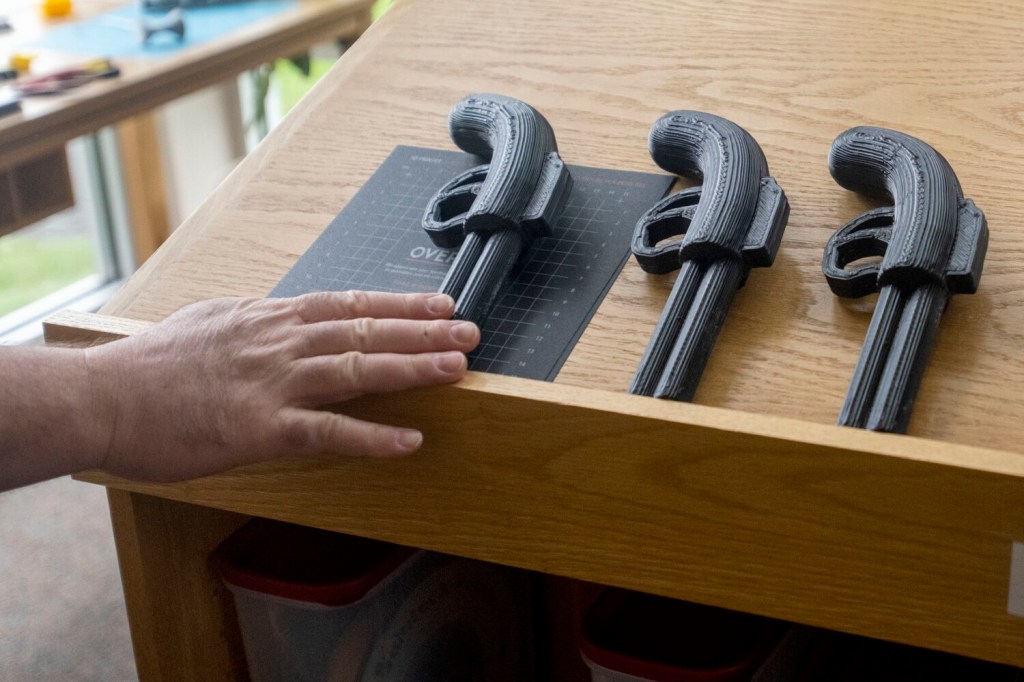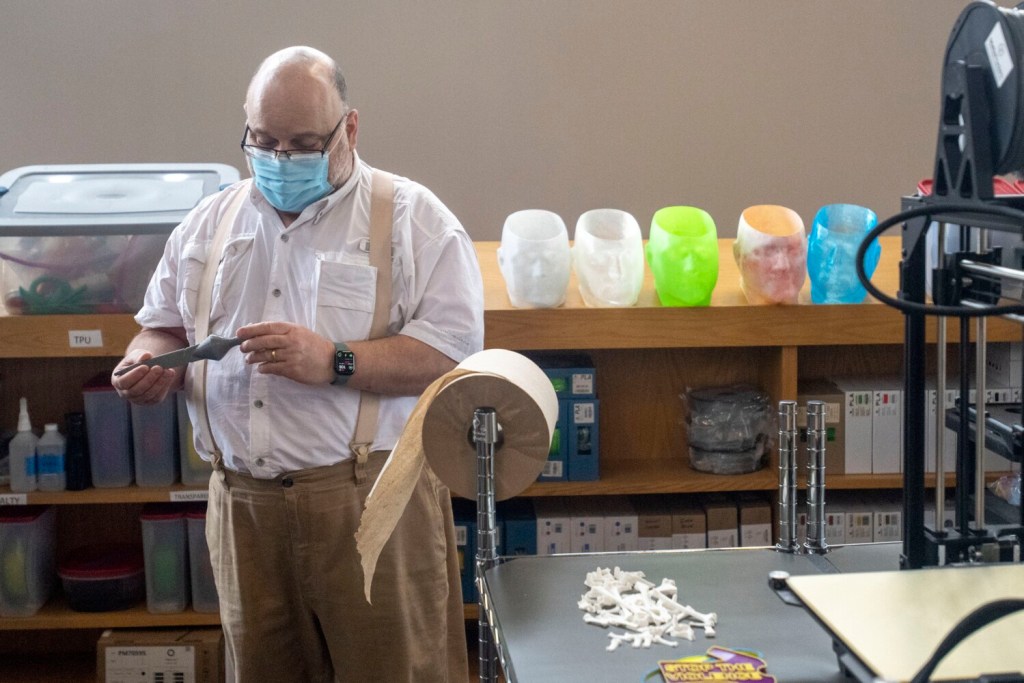WATERVILLE — An unusual partnership, one that involves the burgeoning field of 3D printing, has contributed to the launch this weekend of the latest production hosted by the Waterville Opera House.
Opening night of the play “Clue” was Friday and for those familiar with the board game on which the play is based, a murder mystery must be solved — including the murder weapon that was used.
Was the dastardly act done using a revolver, wrench or candlestick? Maybe a lead pipe or dagger? Perhaps a rope? Whichever the case, the Opera House needed to create the weapons for the performances, and producers turned to 3D printing as a fresh way to make them.

Prop guns for the play “Clue” wait to be picked up by Waterville Opera House staff Oct. 27 at Kennebec Valley Community College in Fairfield. Michael G. Seamans/Morning Sentinel
Opera House Executive Director Michele Sweet said her team had initially been working with Waterville Creates for its 3D printing needs, but they needed bigger equipment. So Serena Sanborn, the education and outreach coordinator for the Opera House, reached out to Kennebec Valley Community College.
Stephen LaRochelle is the director of library services at KVCC and faculty advisor to the college’s 3D printing club. He got to work with club members to create the weapons the performers are using in the play.
3D printers use computer-aided design to create three-dimensional objects from a variety of materials. LaRochelle said he was approached about five years ago to consider including 3D printing at the school’s two libraries because of the need for it in the curriculum.
Now KVCC has around 30 printers with approximately 20 of them in the libraries. The majority of their printers are smaller units that cost $300 each, but they do have a couple of larger ones that cost $3,000 each, LaRochelle said.

Actor Paul Herard holds a prop gun Thursday during dress rehearsal for the Waterville Opera House production of “Clue.” The gun was fabricated by the 3D printing club at Kennebec Valley Community College in Fairfield. Michael G. Seamans/Morning Sentinel
He applied for and was awarded more than a half-dozen grants to purchase the equipment. The Perloff Family Foundation and the Maine Space Grant Consortium have been the source of the majority of the funding.
In May 2020, the club produced face shields for health care workers treating an ever-growing number of COVID-19 patients.
The school’s printing club consists of students, faculty, elementary and high school teachers, and regular folks with an interest in 3D printing. All students are welcome to use the printers once they’ve been trained.
Liz Shapiro, the production manager for the Opera House, explained that “Clue” needed realistic props and the production team decided 3D printing was the best way to achieve the desired look.
Future productions could use costumes and parts of sets created by 3D printers, she said, noting that it is “an art form that’s becoming more mainstream.”
“Clue” will run until Nov. 21. Performances will be held Fridays and Saturdays starting at 7:30 p.m. Matinees are at 2:30 p.m. on Sundays.
Send questions/comments to the editors.







